Doctor of Ministry (DMin) in Formation and Soul Care
The Doctor of Ministry (DMin) in Formation and Soul Care at Friends University is a doctoral- level program seeking to equip Christian practitioners with a comprehensive biblical, theological, and practical paradigm for Christian formation and soul care for a 21st century context. The program is four-years total with three-years devoted to the core curricular schedule examining biblical theology (“awareness of God”; year one), self knowledge and soul care (“knowledge of self”; year two), and its implications for mission and engagement in the world (“mission to others”; year three). A fourth year will be devoted to writing and finalizing a doctoral project.
Doctor of Ministry in Formation and Soul Care
Program Highlights
Become a “Doctor of the Church”
There is no greater need than now for the church of Jesus to be reformed around the person of Jesus.
A Doctor of Serving
A DMin program is not a research doctoral program. More broadly, it is a program that serves practitioners in and for the church (i.e. “Doctors of the Church”).
Helping Fulfill the Mission of God
The purpose for the Doctor of Ministry in Christian Formation and Soul Care is to help the 21st century church organize itself for the purpose of fulfilling the mission of God.
Restoration and Healing
“Doctors of the church”—as they have been known in Christian history—have been those tasked with the work of healing and restoration back to the heart of Christ.
Awareness of the Holy Spirit
Cultivating a deeper awareness of the work of the Holy Spirit in the history of the church, the work of formation, ministry. Challenge some of the ideological forces that have captivated the church in the late modern era.
Life-Long Formation
You will be able to connect the knowledge of God to the knowledge of self as a paradigmatic construct for life-long formation and discipleship—particularly through spiritual direction.
Developing a Vision
Develop in the student a comprehensive biblical, theological, and historically- rooted vision of Christian formation for a 21st century context.
Earn your Doctor of Ministry.
Program Outcomes
Program outcomes for the Doctor of Ministry program are below:
- Develop in the student a comprehensive biblical, theological, and historically- rooted vision of Christian formation for a 21st century context.
- Cultivate a deeper awareness of the work of the Holy Spirit in the history of the church, the work of formation, ministry.
- Challenge some of the ideological forces that have captivated the church in the late modern era.
- Connect the knowledge of God to the knowledge of self as a paradigmatic construct for life-long formation and discipleship—particularly through spiritual direction.
There is no greater need than now for the church of Jesus to be reformed around the person of Jesus. The need for the church to be formed into the image of Christ is not something that we can get to when we get around to it. This is the core issue of our day. It is, in the timeless words of Dallas Willard in his classic Renovation of the Heart, the essential aspect of Christianity:
“The spiritual life is a life organized around God…[and] can only happen as each essential dimension of the human being is transformed Christ likeness under the direction of a regenerate will interacting with constant overtures of grace from God.”
Dallas Willard, Renovation of the Heart
Admissions Requirements
The Doctor of Ministry program at Friends University admits students who show evidence that they:
- have at least three years of vocational or bi-vocational Christian ministry experience since receiving their first graduate theological degree,
- are involved in an ongoing ministry setting,
- have an academic record that demonstrates superior ability and shows promise of success in doctoral studies (3.25 graduate GPA) and
- hold an accredited Master of Divinity (MDiv) or Master of Theology (ThM) degree, or a Master of Arts (MA) degree in Formation or a similar field. Students admitted with an MA will be requested to demonstrated (a) the ability to thoughtfully interpret scripture and the theological tradition of one’s ministry context, (b) the capacity to understand and adapt one’s ministry to the cultural context, (c) a basic self-understanding of one’s ministerial identity and vocational calling.
We are now accepting applications for the Fall 2025 cohort with a final application deadline of June 1, 2025. If you have any questions regarding the application process, please reach out to Kristin Wilson at kristin_wilson@friends.edu.
Featured Faculty
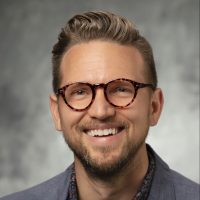
Dr. Keas Keasler
- Associate Professor of Spiritual Theology; Program Director of Christian Spiritual Formation
- Theology & Humanities
- B.A., Baylor University; M.Div., Princeton Theological Seminary; Ph.D., Vrije Universiteit Amsterdam
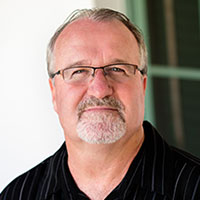
Dr. Keith Matthews
- Guest Lecturer
- B.A., California Polytechnic State University, San Luis Obispo; M.Div., Fuller Theological Seminary; D.Min., Fuller Theological Seminary
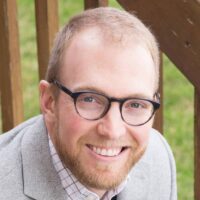
Dr. Josh McNall
- Adjunct Professor of Theology
- B.A., Oklahoma Wesleyan University; M.A., Gordon-Conwell Theological Seminary; Ph.D., University of Manchester
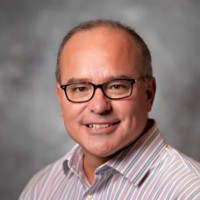
Dr. Jim Smith
- Professor of Religion; Dallas Willard Chair for Christian Spiritual Formation
- Theology & Humanities
- B.A., Friends University; M.Div., Yale University Divinity School; D.Min., Fuller Theological Seminary
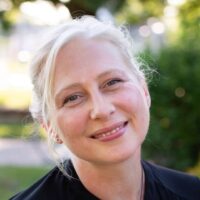
Mandy Smith
- Adjunct Professor of Leadership and Formation
- B.A., Cincinnati Bible College and Seminary; D.Min., Eugene Peterson Center, Western Theological Seminary (Candidate)
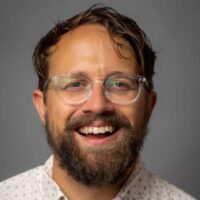
Dr. A.J. Swoboda
- Program Director, Doctor of Ministry in Formation and Soul Care; Adjunct Professor of Church History
- Theology & Humanities
- B.A., New Hope Christian College; M.A., Portland Seminary; Ph.D., University of Birmingham

Dr. Casey Tygrett
- Adjunct Professor of Spiritual Formation
- B.A., Mount Vernon Nazarene University; M.Div., Lincoln Christian University; D.Min., Lincoln Christian University